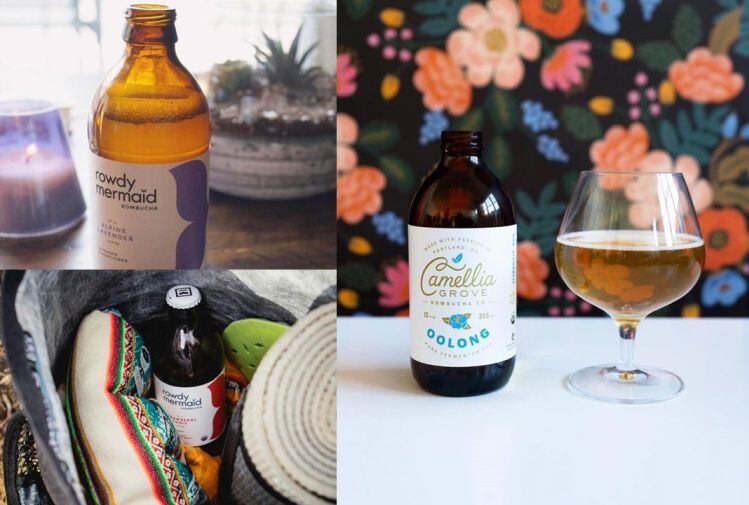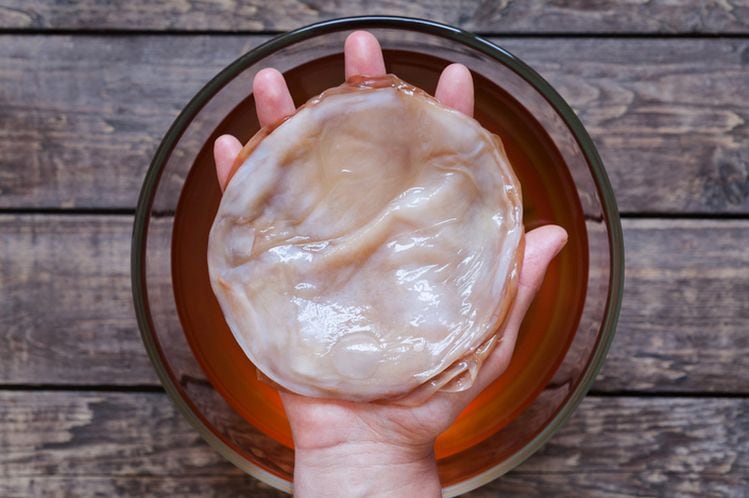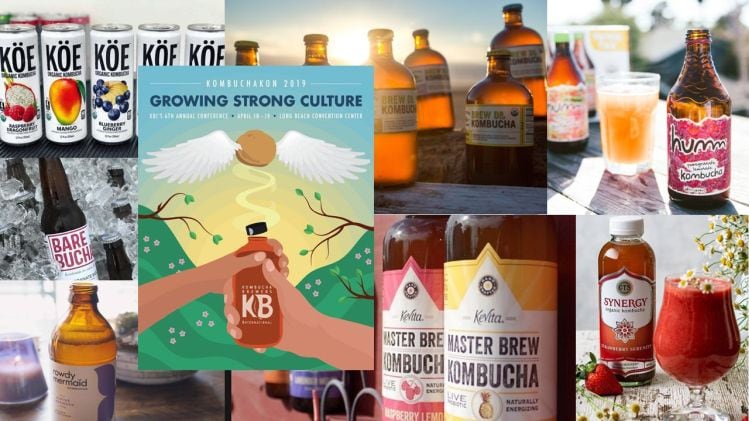“I think this push to raise the threshold is mostly to protect the biggest companies that have not innovated or have not spent the time, money or research to become compliant with the laws on alcohol as they are now,” Robert Deering, chief development officer at Portland, OR-based Camellia Grove Kombucha Co, told FoodNavigator-USA.
“But there are a lot of companies, including small companies like mine, who are compliant, and don't want to see the threshold raised” added Deering, who was speaking to us after GT Dave – founder of market leading kombucha brand GT’s - awarded the KBI with a $1m endowment to support legislative efforts to raise the abv threshold and urged brands to support the KBI’s standard of identity.
‘Authentic kombucha’ is code for ‘home brew
While many KBI members support its new standard of identity, others argue that it has been crafted specifically to mirror the way more prominent members make their kombucha and exclude other brands, rather than thinking about what consumers want, claimed Deering.
“I don’t like the idea that they are making rules that could stifle innovation. For example, they say you can have up to 20% juice or other added ingredients [aside from tea and sugar] because that’s what some of the leading brands do, but juice was never traditionally in kombucha.
“I don’t actually care if people use juice or not, because I don’t think that there needs to be a detailed standard of identity at all,” he stressed. "But if we do have one, it should be something very simple like fermented tea or herbs with a bacteria yeast culture that makes alcohol and produces acids.”
He added: “To me, ‘authentic kombucha’ is code for ‘home brew,’ but we don’t make cheese or anything else on a commercial scale the same way we made it 1,000 years ago.”
Kombucha should be safe for pregnant women, children, and people with autoimmune diseases
Jamba Dunn, CEO at fellow KBI member Rowdy Mermaid said: “There seems to be a strong contingent in the kombucha industry that really wants to hold onto kombucha as really what a home brewer would make, and in our estimation, that is not a view that will allow this industry to grow.
“We were a little bit taken aback by the discussions around alcohol and standards of identity at [the recent] Kombuchakon [conference in Long Beach],” added Dunn, who says Rowdy Mermaid has developed a process ensuring that alcohol levels stay consistently below 0.5% throughout the production process and shelf-life.
“Kombucha should be safe for pregnant women, children, and people with autoimmune diseases. I feel like if we don’t as an industry get alcohol and sugar under control, we’re going to alienate consumers.
“We don’t spend a lot of time testing competitors’ alcohol levels, but we talk to the testing companies about what they are seeing [one source told FoodNavigator-USA last month that four out of five kombucha samples going through her lab were above 0.5% abv].
“There have also been a lot of settlements [of class action lawsuits over alcohol levels on leading kombucha brands] which suggests to me that the industry has not dealt with the alcohol problem yet, although that is just conjecture.”
‘We should let the market decide’
As for the KBI standard of identity, Dunn said: “I think that we should let the market decide.
“Trying to define a standard of identity so narrowly when the industry is so young doesn’t feel very inclusive. And defining it around process rather than product could also limit the potential of the category.
“I don’t feel I want to limit how other people are producing kombucha and I personally don’t know what they mean by an ‘authentic’ kombucha. Does that mean how it was made 2,000 years ago, or 100 years ago, or what [market leader] GT Dave is doing today?”
KBI held regular calls to ensure all members were given the opportunity to participate in the standards creation process, said Dunn, who said he had provided feedback on the proposed standard but had been unable to attend every call and meeting.
“I’d say that a lot of companies are on board with the standard, but we were also approached by many companies that were surprised by it, and we continue to receive calls from companies all over the world.
“I also don’t think anybody clearly understood that our membership dues were going towards fighting for The Kombucha Act.”
'You don’t share process secrets'
When some delegates at Kombuchakon expressed frustration that competitor products were above the 0.5% abv limit, containing up to 3% alcohol in some cases, they were advised to “help educate” rivals on how to control alcohol, said quality director Phil Calabrese. But this is not something that brands that have invested time and money developing proprietary processes should have to do, he said.
“People share information within industries all the time, but you don’t share process secrets. But there’s a sentiment at KBI where they seem to expect people to do that, and I just think that’s hogwash."
Dunn added: “I feel like it would have been better if GT’s put that money into sponsoring PhDs in microbiology to help the industry solve the challenge of controlling alcohol in the industry [rather than lobbying for legislative changes to raise the abv threshold].”
KBI: 'We’re not trying to keep anyone out of the market'
Speaking to FoodNavigator-USA at the Kombuchakon conference, KBI president Hannah Crum said she welcomed innovative new approaches that would help manufacturers brew live, raw kombucha and remain under 0.5% abv.
As for the new standard, which will be published in early June, she said: “We’re not trying to keep anyone out of the market.
“We encourage Coca Cola or PepsiCo to make an authentic traditional brewed raw kombucha product that hasn’t been processed, and we welcome everyone to innovate this space and make novel kombucha products.”
Further reading:
- Read more about the new standard of identity HERE and get GT Dave's perspective on it HERE.
- Discover how Bare Bucha’s novel approach to brewing kombucha in stackable rectangular trays could help speed up the fermentation process and keep alcohol levels consistently below 0.5% abv, solving a major technical challenge for the industry: WATCH the VIDEO.
- How big is the US retail market for kombucha? Learn more from SPINS HERE.
Regardless of the alcohol content of the finished beverage, if kombucha reaches 0.5% abv at any time during the production process, it must be produced on TTB-qualified premises and is subject to TTB (Alcohol and Tobacco Tax and Trade Bureau) regulations, and…
- Must comply with the applicable labeling, formula, and tax requirements of the Internal Revenue Code.
- Must feature a government health warning about alcohol.
- Will be subject to alcohol taxes.
If the alcohol is derived from the fermentation of sugar or another substitute for malt, it will generally be classified as beer, although it is possible to produce a kombucha-style product that is classified as a wine or distilled spirit.
If firms produce refrigerated kombucha that is stored by a retailer in an unrefrigerated area, and the alcohol content increases to more than 0.5% abv due to continued fermentation in the bottle, they are liable for alcohol taxes.




